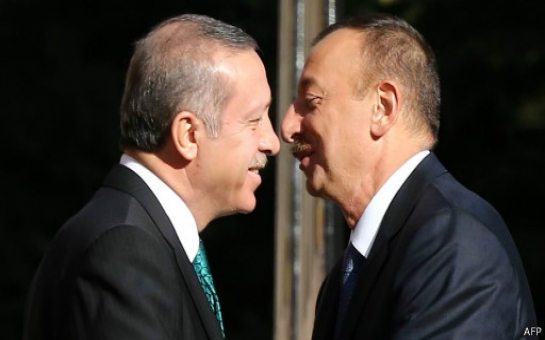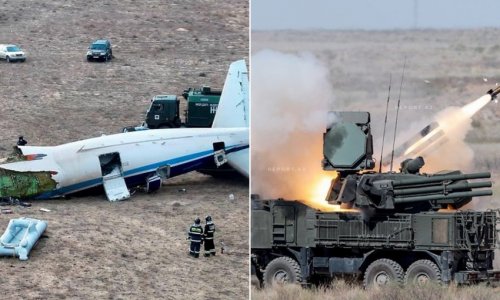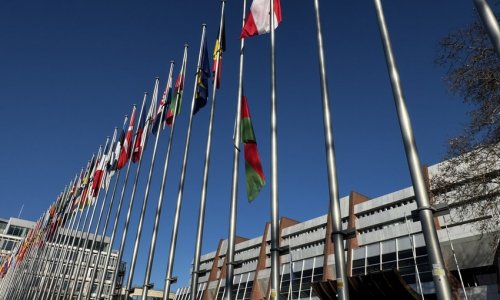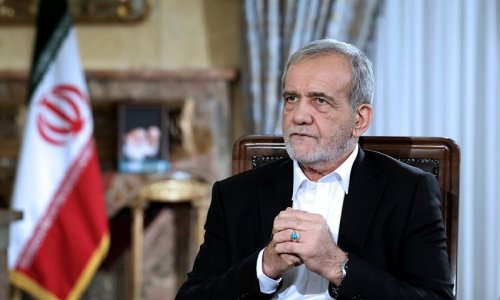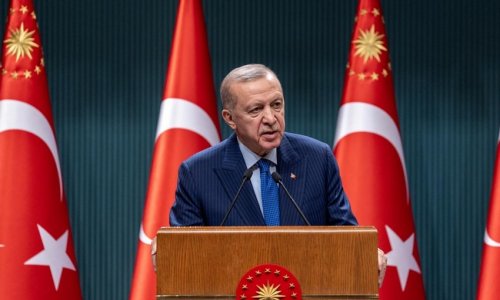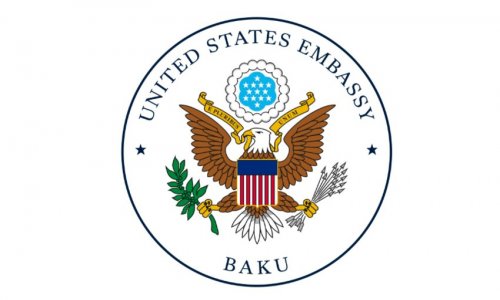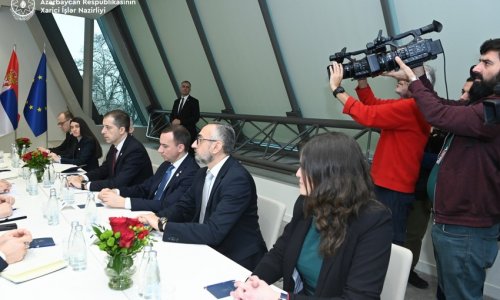When Recep Tayyip Erdogan arrived in Baku in early September, shortly after his election as president, he was welcomed with open arms.
“We are very pleased that less than a week after your swearing-in ceremony you are paying a visit to Azerbaijan,” beamed Ilham Aliyev, president of Azerbaijan.
“There is not a single person in Azerbaijan who would not love Turkey as much as their homeland.”
It was not ever thus. Just five years ago, as Turkey embarked on a rapprochement with Armenia – Azerbaijan’s neighbour and bitter enemy since a war two decades ago – Mr Aliyev reacted with fury, threatening to cut off the natural gas flow to Turkey. Perhaps fittingly, natural gas has brought the two back together.
In particular, one project has reshaped ties since Mr Aliyev’s 2009 threat: the development of phase two of the Shah Deniz gasfield in the Caspian Sea off Azerbaijan – and the construction of a 3,500km pipeline to carry gas through Georgia and Turkey to southern Europe.
For Turkey, which aspires to become an energy hub, the project – signed off by a BP-led consortium in December – is critical. “Azerbaijan is now an invaluable partner in Turkey’s own energy future – it’s really one of the key reliable suppliers of additional gas which would make Turkey’s dream to become a serious energy hub possible,” says Sinan Ulgen, chairman of EDAM, an Istanbul think-tank.
The project’s significance goes beyond regional politics: the Trans-Anatolian Pipeline (Tanap) and Trans-Adriatic Pipeline (TAP), which make up the “Southern Corridor”, would deliver Azeri gas directly to Europe.
As the crisis in Ukraine focuses European minds on reducing reliance on Russian gas, the pipeline has assumed even greater importance, and officials are hoping that it could be doubled from capacity of 16bn cubic metres, potentially carrying supplies from Turkmenistan or northern Iraq.
Ukraine is “a reminder to us and Europe of the importance of energy security and diversity of supply,” says Daniel Stein, energy adviser at the US State Department.
“Potential is here and Azerbaijan holds substantial additional volumes. That’s one of the reasons that Tanap has been sized so that it can handle additional volumes. There’s an expectation that will happen.”
While officials and strategists may gush about Shah Deniz II and the Southern Corridor, the $50bn project has generated less enthusiasm among investors. Within months of agreeing the investment plan for Shah Deniz II, Total sold its 10 per cent stake and Statoil reduced its 25.5 per cent to 15.5 per cent.
Ironically, the withdrawal of some oil majors has brought Baku and Ankara even closer. Azerbaijan – through Socar, the state oil company, and Sofaz, the sovereign wealth fund – will fund $15bn of the project over five years, says Shahmar Movsumov, chief executive of Sofaz. “This is the way to open all of our gas reserves to Europe,” he says.
Turkish state oil company TPAO, meanwhile, paid $1.5bn to buy Total’s stake in Shah Deniz, while together with Botas, the state pipeline company, it owns 30 per cent of the Tanap pipeline.
Socar has also become a leading investor in Turkey, building the $5bn Star refinery at Aliaga on the Aegean coast. It owns Petkim, a petrochemical company, and it even bought 50 per cent of a pro-government newspaper. Total investment in shared oil and gas projects is expected to rise to $45bn by 2018. “This is a new period in which Turkish-Azerbaijani relations are energy-oriented and have a stronger foundation than in previous periods,” says Bulent Aras, professor of international relations at Sabanci University in Istanbul.
Since 2009, Ankara has been a staunch supporter of Baku over Nagorno-Karabakh, an Azeri region occupied by Armenia since a war in the early 1990s. After recent skirmishes between Azeri and Armenian troops marked the most deadly period in the Nagorno-Karabakh conflict since a 1994 ceasefire, Mr Erdogan told his Baku hosts: “If the Armenian-Azerbaijani conflict is resolved, the problem between Turkey and Armenia will also be resolved. But if the conflict remains unresolved, the situation between Turkey and Armenia will not change.”
(Financial Times)
Bakudaily.Az

